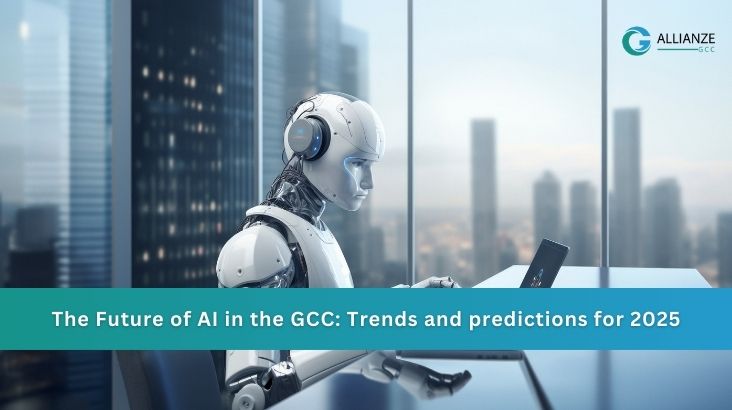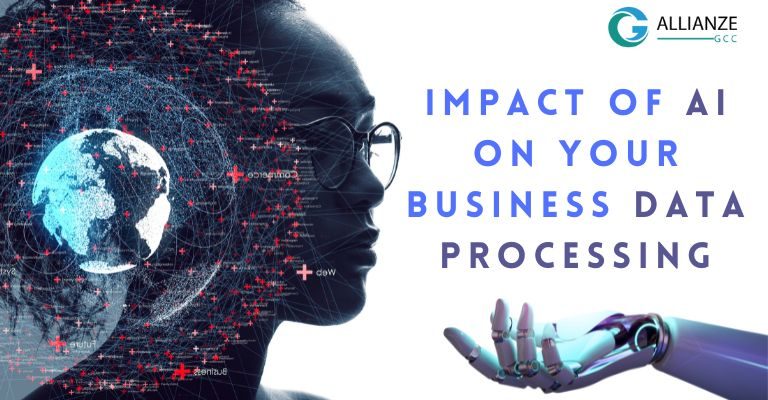
The Future of AI in the GCC: Trends and predictions for 2025
In recent years, the GCC region, or the Gulf Cooperation Council has witnessed a significant shift in business operations and infrastructure, all thanks to technology adoption. Whether integrating IoT devices in real estate or popularizing global commerce through online shops, almost every sector has taken several steps toward digital transformation. And to say artificial intelligence laid the cornerstone for this transformation would be an understatement. AI has paved the way for a technological revolution worldwide; the GCC region is not an exception!
Whether it’s the public sector implementing Generative AI protocols to build strong relations with customers or amalgamating cloud infrastructure with AI modules, this modern technology has opened the gates for innovation and agility. With this being said, we have compiled a list of trends and predictions that artificial intelligence will bring to the GCC region in 2025.
 More focus on Responsible AI
More focus on Responsible AI
There has always been a concern regarding the ethics and authenticity of reports generated or actions performed by AI models. Since these are nothing but computerized programs functioning on machine learning algorithms, data science, and analytical reasoning, they produce results completely based on pre-determined rules and analytical logic.
Unlike human intelligence, these models can be used for malicious purposes due to the sheer absence of legal rules and policies. That’s why one of the major AI trends to expect in the GCC region for 2025 is a significant shift towards developing Responsible AI models. From eliminating bias to reducing hallucinations and abrupt data evaluation, several measures will be taken to enhance the authenticity of reports and actions from AI models.
Intelligence amplification through augmented working
Another AI trend that will pave the way for digital transformation in the social and employment sector within the GCC region is augmented working or a partnership between humans and AI models. By integrating scalable training layers, it will be possible for human employees to draw power from the cognitive and analytical abilities of artificial intelligence models and streamline the decision-making process. Several new plans will be implemented to realize augmented working and form a strong, formidable partnership with AI models.
For instance, repetitive workflows will be automated through AI programs, allowing human employees to put their focus on other important business operations that require manual intervention. Similarly, AI-based data analytical models can help healthcare professionals skim through humongous patient data and make appropriate decisions.
Augmentation of next-gen AI chatbots
One of the revolutionary AI predictions that will revolutionize the GCC region is the augmentation of next-gen AI chatbots. Although these computerized programs have played a huge role in developing interactive communication between businesses and their end customers, the models had numerous restrictions and limitations. In fact, responses created by AI chatbots had huge differences from that of human assistants, owing to which they failed to influence users’ decision-making abilities.
However, in 2025, Predictive AI and sentimental analysis will play a big role in bridging the gaps between AI chatbot operations and user expectations. From making the responses more humanized to enabling the chatbots to evaluate user requests based on their intent and sentiments, several ways are there through which these computerized programs can be modified. It will further help businesses to provide authentic responses to their end users and create a platform for trust and credibility.
AI in defense and cybersecurity
One of the major areas where we will be expecting the amalgamation of numerous AI trends in the GCC region is cybersecurity and defense. Since cyber threats are increasing with each day and despite having numerous encryption and security layers being implemented, systems are found to be vulnerable to external attacks. That’s why integrating AI models capable of analyzing any unauthorized entry or malicious action seems to be the most rational approach.
For example, AI models trained to identify anomalies in system behavior and state variables at the beginning will give professionals enough time to check the security layers and modify them on the go. Similarly, artificial intelligence software powered with machine learning algorithms can detect potential security breaches and shut down the systems before significant damage is caused.
Conclusion
The future of AI in the GCC region is indeed bright and full of potential, provided the true power of this new technology can be harnessed on time. Although there are concerns regarding the authenticity and legislation of AI models and their functions, implementing appropriate rules and focusing on unbiased algorithms will help overcome these hurdles with ease. Rest assured, AI will bring significant changes across numerous industries in the GCC region, from healthcare to the employment sector in the upcoming years.

 More focus on Responsible AI
More focus on Responsible AI


